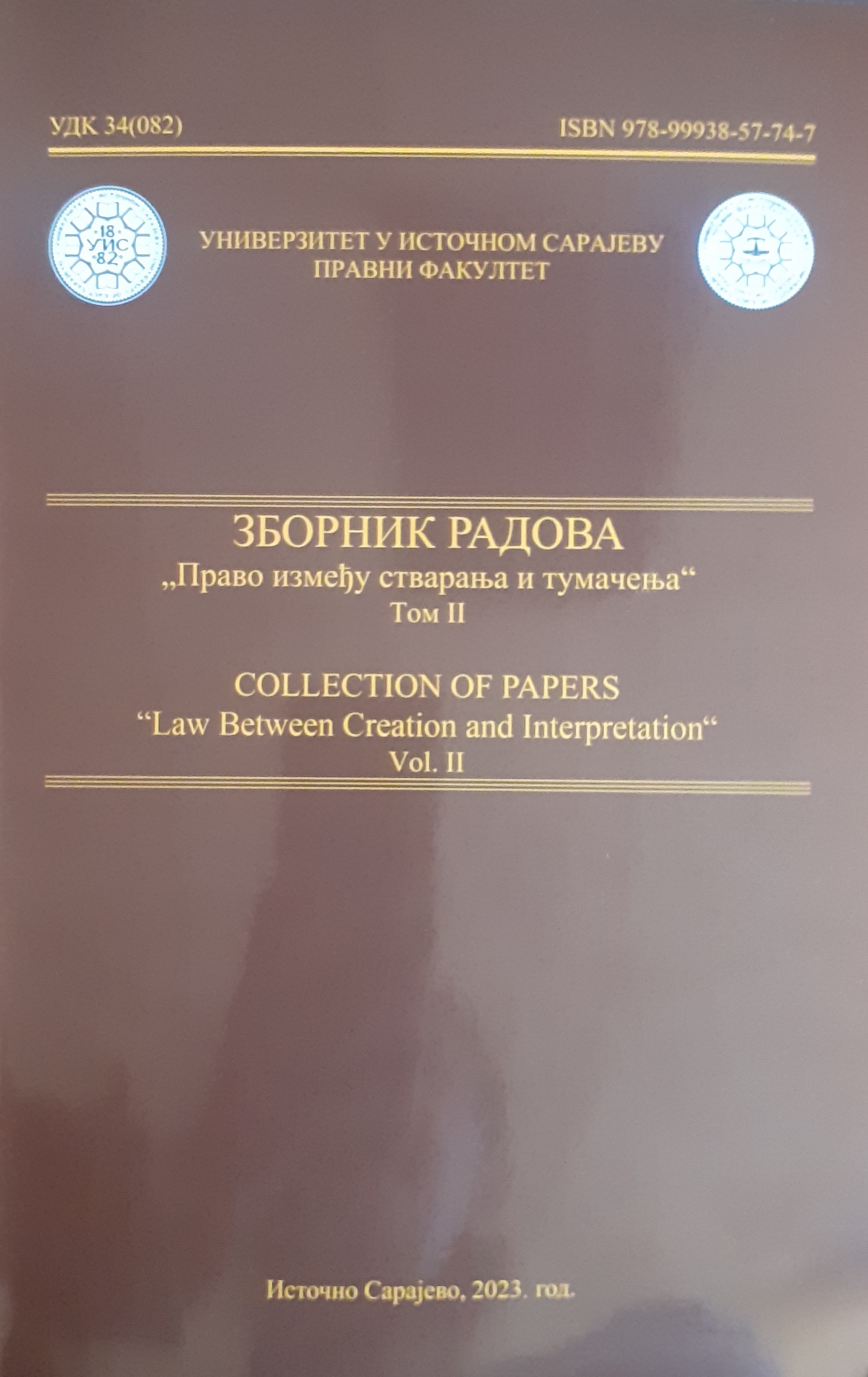Заступање детета у случају постојања супротности интереса са родитељима
On Representing Children in Situations Where Parents May Have Adverse Interest
Author(s): Zoran Ponjavić, Ivana Ponjavić Serdar
Subject(s): Law, Constitution, Jurisprudence
Published by: Правни факултет Универзитета у Источном Сарајеву
Keywords: Legal representative; Adversary interests; Collision guardian; Temporary representative; Child participation;
Summary/Abstract: Due to their vulnerability an immaturity, children are under the special protection of their parents, their statutory guardians. They exercise their children's personal and property rights on their behalf and in their best interest. Parents have autonomous and general authority in this regard, which is prescribed by law and their mission exceeds the representation of persons lacking legal capacity based on civil law. In this way, the law has given parents a capital role in securing the legal lives of their minor children. The trust that the statutory guardian will be capable of guarding the minor's interests is the cornerstone of statutory representation. However, in cases where the interests of the statutory guardian conflict with the child's interests, this trust no longer exists, and a subsidiary form of representation needs to be established. Based on the Family Law of the Republic of Serbia, this situation is resolved by appointing collision guardian or temporary representative of a child. Their authority is restricted in the same way as the authority of the statutory guardian. The difference between them is that the temporary representative is appointed by the court when the civil case has already been filed and for this purpose only, while the collision guardian is appointed in advance and is given much broader authority. The adverse interests may be direct, with the most obvious case being the child's representation related to his or her property rights, that is, managing and disposing of his or her property, as well as the child's representation in civil cases where the child appears as a part to the proceedings. The existence of adverse interests is more difficult to establish in cases of child representation related to his or her personal and property rights, where the child appears as a "covert" party. There is a question of whether adverse interests exist in such cases at all, since the child does not have "autonomous material rights", or whether there is just an issue of different opinions of parents regarding the requirements of the child's best interest, which should not result in the appointment of a temporary representative. Under the influence of the Convention of the Rights of the Child and the trend of increasing participation of children in realizing their rights, resorting to these subsidiary methods of their protection represents the means of their indirect involvement in creating their own interests. Even without relieving the statutory representative, a child has acquired certain procedural autonomy, particularly given the fact that the child itself can demand the appointment of a temporary representative. In this way, the mechanism of children's protection is adapted to the progressive recognition of their rights according to their natural capacity from birth to adulthood. In this situation, the most challenging thing is to find the balance between the protection that a child needs and his or her participation in decision-making since, although it might seem counterproductive to include a a child in every single decision, it is also very dangerous to leave him or her unprotected.
Book: Зборник радова "Право између стварања и тумачења" Том II
- Page Range: 39-61
- Page Count: 23
- Publication Year: 2023
- Language: Serbian
- Content File-PDF

